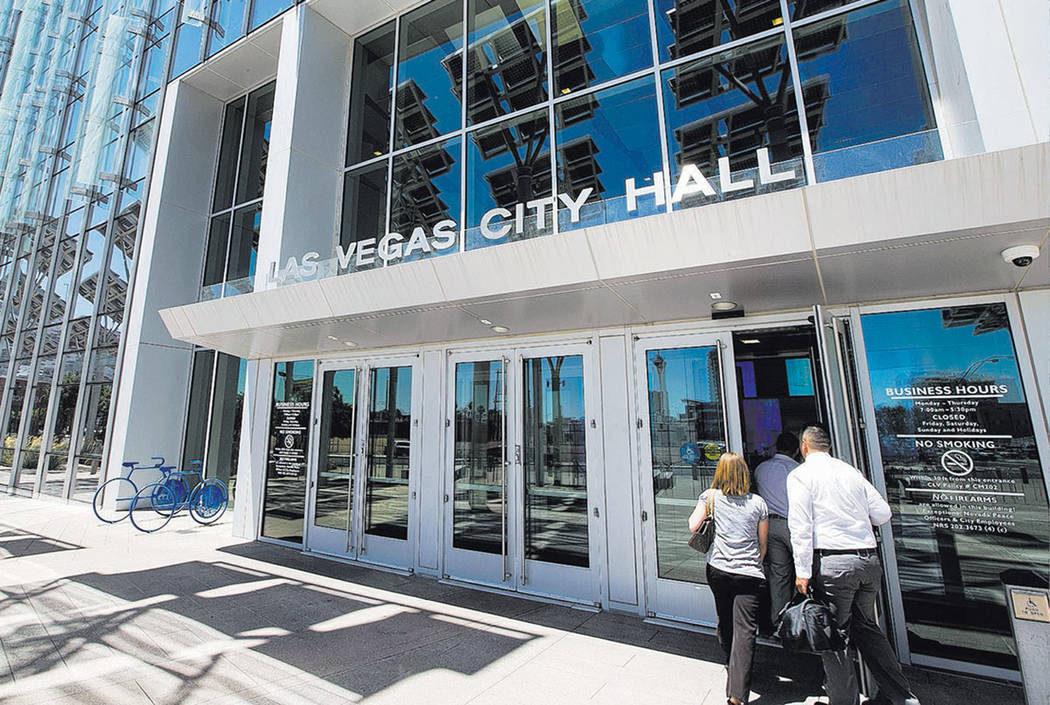Las Vegas budget boosts public safety, but not homeless services
The Las Vegas City Council on Monday approved a $616 million general fund spending plan for the coming fiscal year that accomplishes two key goals: It funds dozens of new public safety positions while staving off a structural deficit.
The final budget also keeps intact a $5 million surplus projected during a review of the tentative plan in April.
It will be used to fully fund a third wave of hiring for city marshals, staff 13 positions at Fire Station 103, hire eight administrators in the Department of Public Safety and provide the city’s share of 62 new Metropolitan Police Department employees, including 40 police officers.
Metro’s request for staffing, which the city shares with Clark County, fell by $2.7 million since last month, enabling the city to contribute more money to capital improvement projects, according to Chief Financial Officer Gary Ameling.
Despite attention to public safety, the spending plan does not fund initiatives for homelessness, the council’s other high-priority issue, leaving officials to continue searching for money elsewhere.
Ameling estimated the city would spend $35 million on homelessness for fiscal year 2020, excluding capital funds, but less than 10 percent of it is expected to be directed toward outreach. Much of the cost is associated with law enforcement, fire services and the court system, according to Monday’s presentation to the council.
Councilman Bob Coffin pointed to the failure this legislative session of a city-sponsored bill to generate new funding for fighting homelessness through a sewer surcharge and real estate transfer taxes. The bill was later amended to create a working group to address homelessness instead.
“They didn’t listen to us in Carson City,” Coffin said. “They gave us the cold shoulder.”
While the city’s final budget also showed healthy $20 million-plus reserves, it also revealed that more work needs to be done to beat back the likelihood of sinking into deficit spending by as early as fiscal year 2022.
City expenses are growing at 4.1 percent, outpacing the 3.5 percent revenue growth, meaning that the practice of freezing non-critical jobs to save money is expected to continue. Las Vegas has left 82 positions unfilled to save $8 million thus far, but the goal is to save $10 million, Ameling said.
Adding to the caution, the city’s reliance on property tax and consolidated tax revenues, including sales tax, is particularly precarious in the event of a likely economic slowdown because both sources are sensitive to fluctuations.
Still, both tax streams continue to fare well, projected to rise by 5.8 and 5 percent, respectively, in the coming fiscal year.
“It’s a very exciting time,” Ameling said of the city’s booming economic development. “But we’re keeping an eye on it because we’re not quite sure how it’s going to play out.”
Contact Shea Johnson at sjohnson@reviewjournal.com or 702-383-0272. Follow @Shea_LVRJ on Twitter.
Contact Shea Johnson at sjohnson@reviewjournal.com or 702-383-0272. Follow @Shea_LVRJ on Twitter.


















